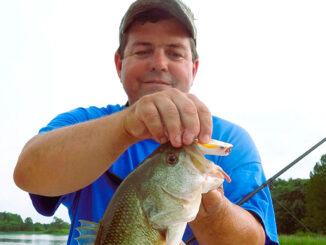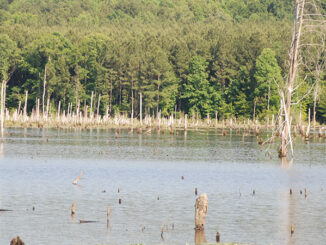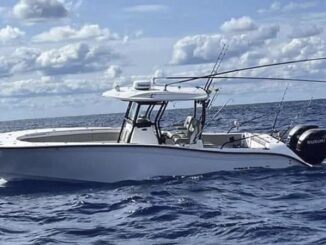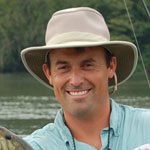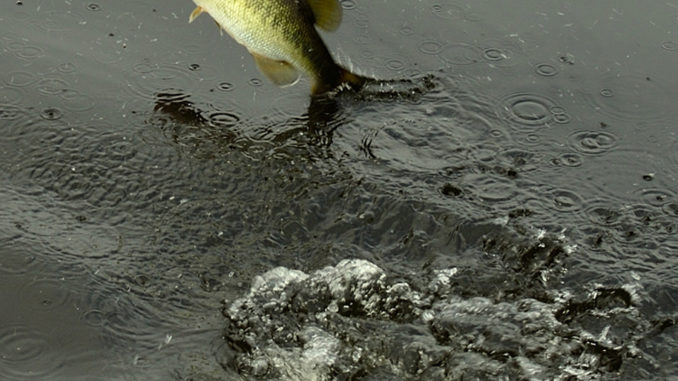
Bass and other predators, in both saltwater and freshwater environments, will stage near the best food sources available. With few forage options available for bass in Lake Sutton, the sunfish (or bream) beds are hotspots for locating lunker bass.
Typically, bluegill are the primary food source for bass in small farm ponds and a substantial forage component in some of the larger systems. In fact, the relationship between bass and bluegill will determine how healthy a fishery will be. But larger reservoirs will also have a significant forage stock of herring or shad that fuels the high volume of predators.
Sutton actually acts as a small farm pond, but with a limited food source. Overall, the forage base in Lake Sutton is primarily comprised of bream and, to a lesser degree, the recovering population of chestnut shad.
Sutton is well known for its surface-feeding frenzies, but most involve the super-small shad fry. Bass will not let the forage grow too much before they gobble up any of the remaining populations after each hatch.
Due to the restrictions on aquatic vegetation, the forage base at Sutton struggles annually. But over the years, the N.C. Wildlife Resources Commission has sunken Christmas trees to provide cover for forage. As a result, the bass and prey populations are recovering and growing very well.
While the forage base continues to recover, bass know exactly where to find their “porterhouse” dinner, especially the big bass. Not only does the unusual temperature regime control when bass spawn, bream will also spawn at different times from early March through mid-summer.
Find a bream bed and big bass will likely be cruising by in close proximity. Typically, Lake No. 1 will have plenty of bream spawning along the banks in March and April, offering an ideal place to catch a lunker bass.

